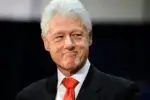French President Emmanuel Macron is hosting a major summit in Paris, gathering European leaders—including Ukrainian President Volodymyr Zelensky—to strengthen Ukraine’s security amid ongoing ceasefire discussions with Russia.
European Security Commitments
The summit aims to outline security guarantees for Ukraine once a ceasefire is reached. One major proposal under discussion is the possible deployment of European military forces by a “coalition of the willing” to deter future Russian aggression.
Macron announced a new €2 billion military aid package to reinforce Kyiv’s defenses. This support will enable the rapid deployment of French military equipment from its stockpiles, further solidifying European backing for Ukraine.
Coordination with Allies
Ahead of the summit, Macron spoke with US President Donald Trump about the role Ukraine’s allies could play in ensuring long-term security. The conference, co-hosted by UK Prime Minister Keir Starmer, includes 27 heads of state and government. NATO member Turkey is represented by Vice President Cevdet Yilmaz, as President Recep Tayyip Erdogan faces domestic protests.
Speaking alongside Zelensky, Macron emphasized that the world had reached a “decisive phase to put an end to the war of aggression” and urged Russia to accept a 30-day ceasefire proposed by Ukraine “without preconditions.” He accused Moscow of prolonging the war by introducing new conditions rather than engaging in peace efforts.
Push for Strong Decisions
In a French television interview, Zelensky expressed hope for “strong decisions” from the summit, insisting that pressure on Russia must not decrease. Meanwhile, the White House confirmed that Russia and Ukraine have engaged in indirect discussions in Saudi Arabia over a potential ceasefire in the Black Sea region.
While Kyiv has confirmed participation, Moscow has demanded sanctions relief on its agricultural sector as a condition for negotiations. US Secretary of State Marco Rubio acknowledged the complexity of the talks, stating that “a peace deal won’t be simple,” though progress is being made. However, no timeline has been established for a potential agreement.
Concerns Over Conflict Escalation
Despite diplomatic efforts, tensions remain high, with both Russian and Ukrainian officials accusing each other of obstructing negotiations. Macron blamed Moscow for “dragging out the conflict” and insisted that continued pressure was necessary to achieve a resolution.
A key post-ceasefire consideration is the potential deployment of European forces to Ukraine for stability and deterrence. Macron clarified that any European military presence would not be for combat but to prevent further Russian aggression. “This is a pacifist approach,” he stated, describing such a force as “a card in the hands of the Ukrainians” to discourage future attacks.
Meanwhile, South Korea has reported that North Korea has deployed an additional 3,000 troops to Russia this year, supplementing the 11,000 already sent. Seoul also confirmed that Pyongyang continues to supply Moscow with missiles, artillery, and ammunition, raising further concerns about conflict escalation.







